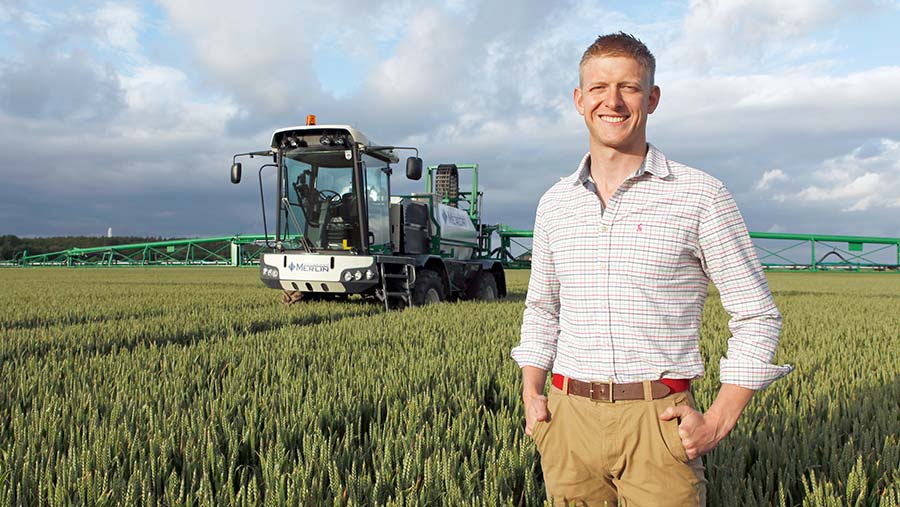The agriculture industry has long been the backbone of human civilization, providing sustenance and raw materials for countless generations. However, in today’s rapidly changing world, the agriculture sector is undergoing a significant transformation, driven by advancements in technology, environmental concerns, and the need for sustainable practices.
As a result, environment and agriculture jobs are evolving and expanding to address these challenges. In this article, we’ll delve into the top seven environment and agriculture job that are shaping the future of the industry.
1. Sustainable Agriculture Manager
Sustainable agriculture managers are at the forefront of the industry’s transition towards environmentally friendly and socially responsible practices.
They oversee the implementation of sustainable farming methods, such as organic farming, crop rotation, and agroforestry. Their goal is to maximize crop yields while minimizing environmental impact.
2. Precision Agriculture Specialist
With the advent of technology, precision agriculture specialists are in high demand. They leverage data analytics, GPS technology, and remote sensing to optimize farm operations.
By collecting and analyzing data on soil health, crop growth, and weather patterns, these specialists help farmers make data-driven decisions, leading to increased efficiency and reduced resource use.
3. Agricultural Economist
Agricultural economists play a vital role in assessing the economic viability of farming practices and policies. They analyze market trends, pricing structures, and trade regulations to provide valuable insights to farmers and policymakers. Their work helps ensure a sustainable and profitable agriculture sector.
4. Agricultural Engineer
Agricultural engineers design and develop innovative technologies and machinery to enhance farming practices. They work on projects related to irrigation systems, crop processing equipment, and automation. These professionals are instrumental in improving farm productivity and sustainability.
5. Soil Scientist
Soil scientists study the composition and health of soil, which is the foundation of agriculture. They assess soil quality, nutrient levels, and contamination to determine the best practices for sustainable farming. Soil scientists help farmers optimize their land use while preserving soil health.
6. Environmental Conservationist
Environmental conservationists working in agriculture focus on preserving natural resources and biodiversity on farmlands. They develop strategies to reduce chemical usage, promote wildlife habitat conservation, and implement sustainable land management practices. Their efforts contribute to a more environmentally friendly agriculture sector.
7. Agronomist
Agronomists are experts in crop production and management. They work closely with farmers to select the right crops, develop planting and harvesting schedules, and optimize crop yields. Agronomists also play a crucial role in implementing sustainable farming techniques and ensuring food security.
Read Also: Skills You Need for a Career in Environment Agriculture
The Importance of Environment and Agriculture Jobs
The agriculture sector is under increasing pressure to produce more food while minimizing its environmental impact. Environment and agriculture job are essential in addressing these challenges. Here’s why they matter:
- Environmental Sustainability: These jobs focus on practices that reduce the industry’s environmental footprint, such as sustainable farming techniques, conservation efforts, and reducing chemical usage.
- Resource Efficiency: Environment and agriculture jobs help farmers use resources more efficiently, including water, land, and energy. This is critical as the global population continues to grow.
- Economic Viability: By assessing market trends and optimizing farming practices, these jobs contribute to the economic sustainability of the agriculture sector.
- Food Security: Agronomists and other experts ensure that crops are grown efficiently and sustainably, contributing to global food security.
How to Pursue a Career in Environment and Agriculture Job
If you’re interested in pursuing a career in environment and agriculture job, here are some steps to consider:
- Education: Choose a relevant degree program such as agricultural science, environmental science, or agricultural engineering. Specialized courses and degrees in sustainable agriculture are also available.
- Hands-On Experience: Gain practical experience through internships, volunteering, or entry-level positions on farms or in agricultural organizations.
- Networking: Build a strong network within the agriculture and environmental sectors. Attend conferences, join professional organizations, and connect with experts in the field.
- Stay Informed: Keep up with the latest advancements in agricultural technology, sustainability practices, and environmental policies.
- Certifications: Consider pursuing certifications that are relevant to your chosen field, such as precision agriculture certifications or sustainable farming certifications.
Conclusion
Environment and agriculture jobs are at the forefront of addressing some of the most pressing challenges facing our planet. From sustainable farming practices to technological advancements, these careers are instrumental in shaping the future of the agriculture industry.
If you have a passion for environmental sustainability, food security, and innovative technologies, a career in environment and agriculture may be a rewarding and impactful choice. By acquiring the necessary education, experience, and skills, you can contribute to a more sustainable and prosperous future for agriculture and the environment.
Read More: The Nutritional Bounty of Lobster: Health Benefits and Considerations



